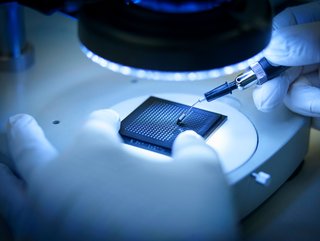Vodafone R&D centre in Spain to advance Open RAN chip design

Vodafone has opened Europe’s first dedicated R&D centre for the advancement of microchip architecture to power new Open RAN networks.
Francisco Martin, Head of Open RAN, Vodafone, explained: “As a pioneer of Open RAN, Vodafone is joining forces with specialist technology companies to expand the ecosystem. Silicon innovation will strengthen Europe’s position in the global market and speed up the roll out of new digital services.”
The centre will be housed in Vodafone’s new digital skills hub in Málaga, Spain, which became operational today. 50 people dedicated to developing Open RAN will join the 650 skilled software engineers, architects and technicians that will be based in at the hub.
Around 20 vendors specialising in chip architecture design and development will join Vodafone to enhance Open RAN capabilities. The focus for the R&D Centre is on establishing a strong ecosystem for silicon design in Europe.
One core strength of Open RAN is that it separates the hardware and software at a mobile base station, allowing for a mix of equipment from different vendors. This means Vodafone can respond quickly to customer demand for more capacity and new services by simply adding new software onto general-purpose hardware.
By collaborating with vendors on microchip architecture and design, Vodafone can drive greater interoperability within the Open RAN ecosystem. The company will implement the jointly developed silicon solutions in its platforms to deliver improved performance and efficiencies as network capacity demands increase.
Vodafone’s hub for talent and innovation
In line with previous announcements, Vodafone is to invest €225mn (US$254mn) over five years in the centralised hub in Malaga, creating more than 600 direct, highly skilled jobs.
By combining the advantage of its geographical scale and bringing together the best technological talent, Vodafone aims to use the centre to develop and launch new products and services faster, cheaper and in multiple countries at the same time. It forms part of Vodafone’s plan to add nearly 7,000 software engineers across Europe by 2025, through a combination of recruitment, re-skilling existing employees and insourcing.
Vodafone will also partner with universities, vocational training schools, local companies and institutions to promote the creation of an innovation hub around the Centre and multiply its impact in the region.
Image: Vodafone






